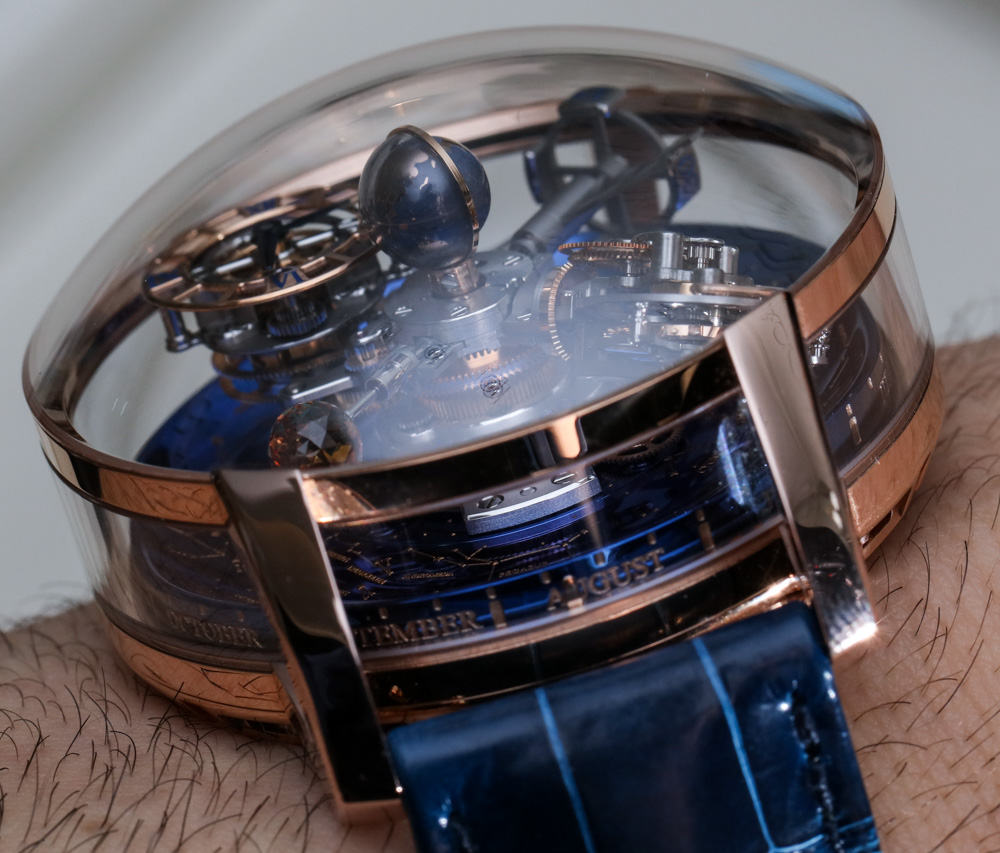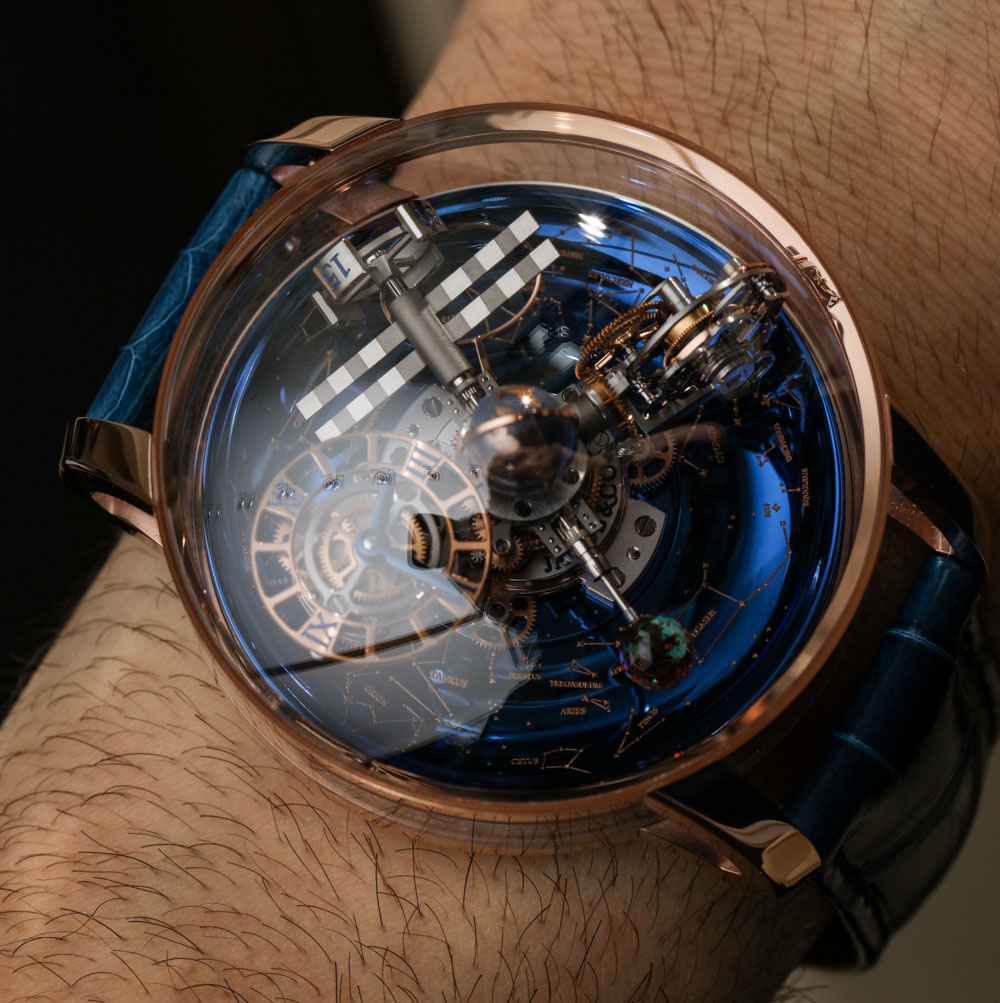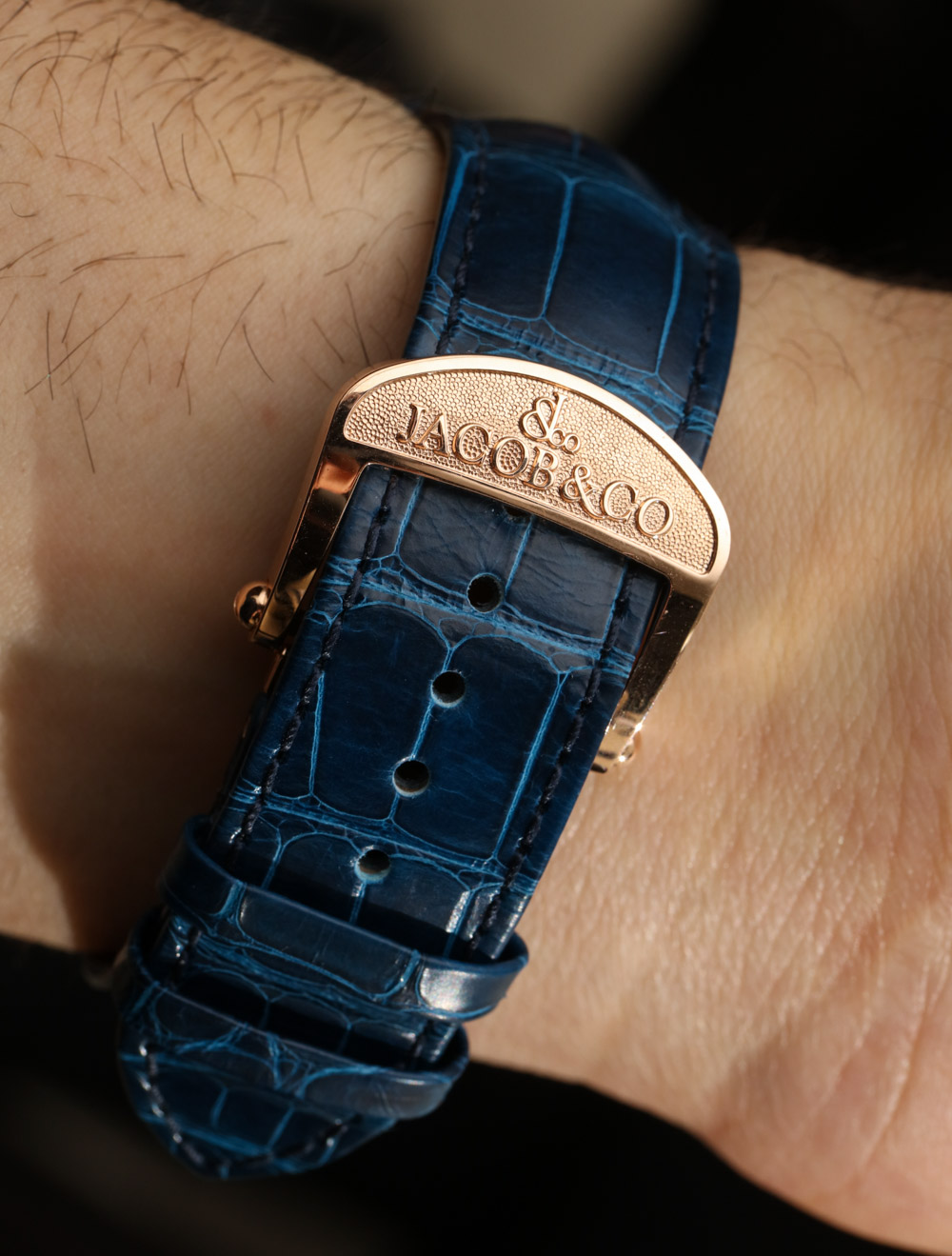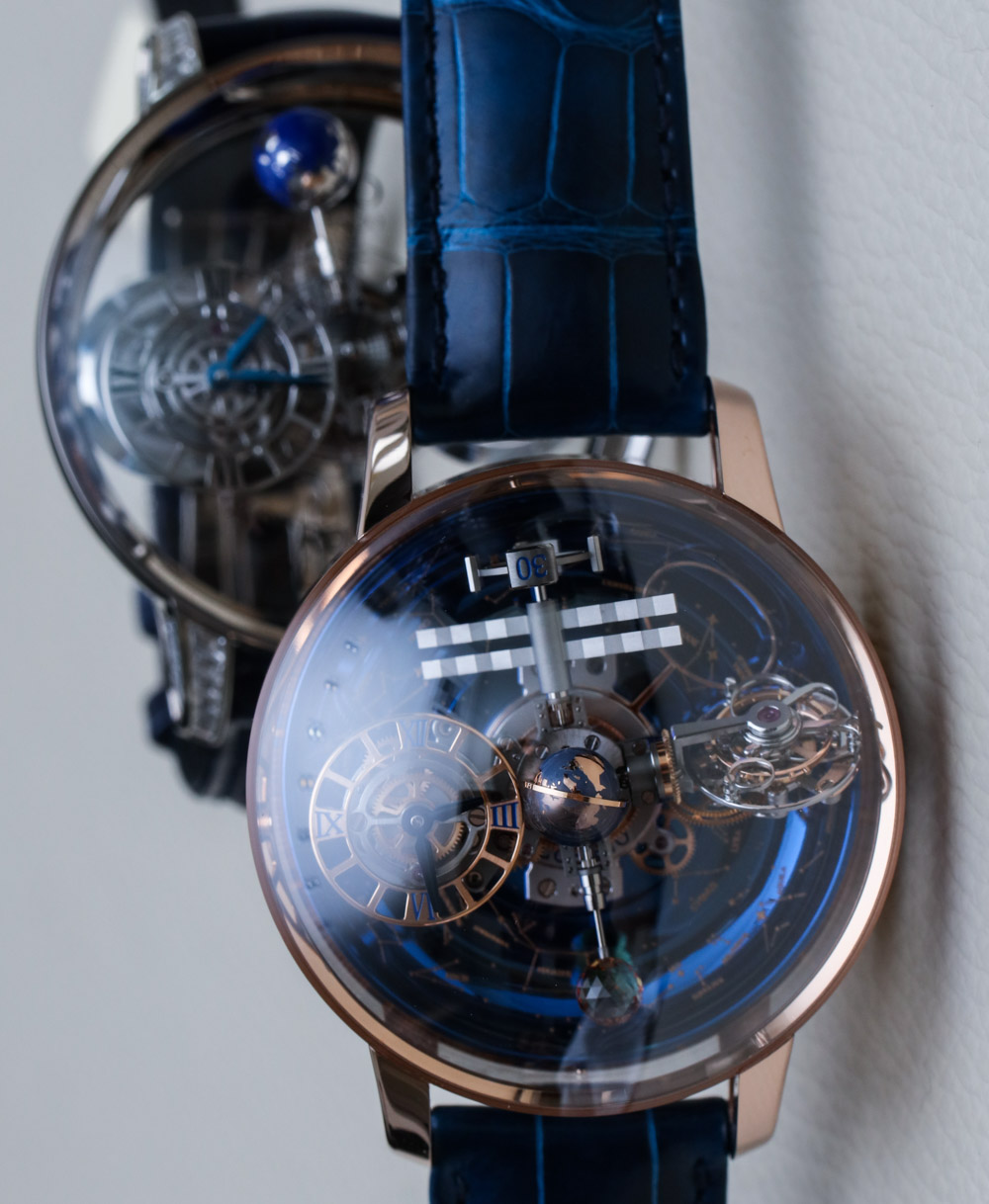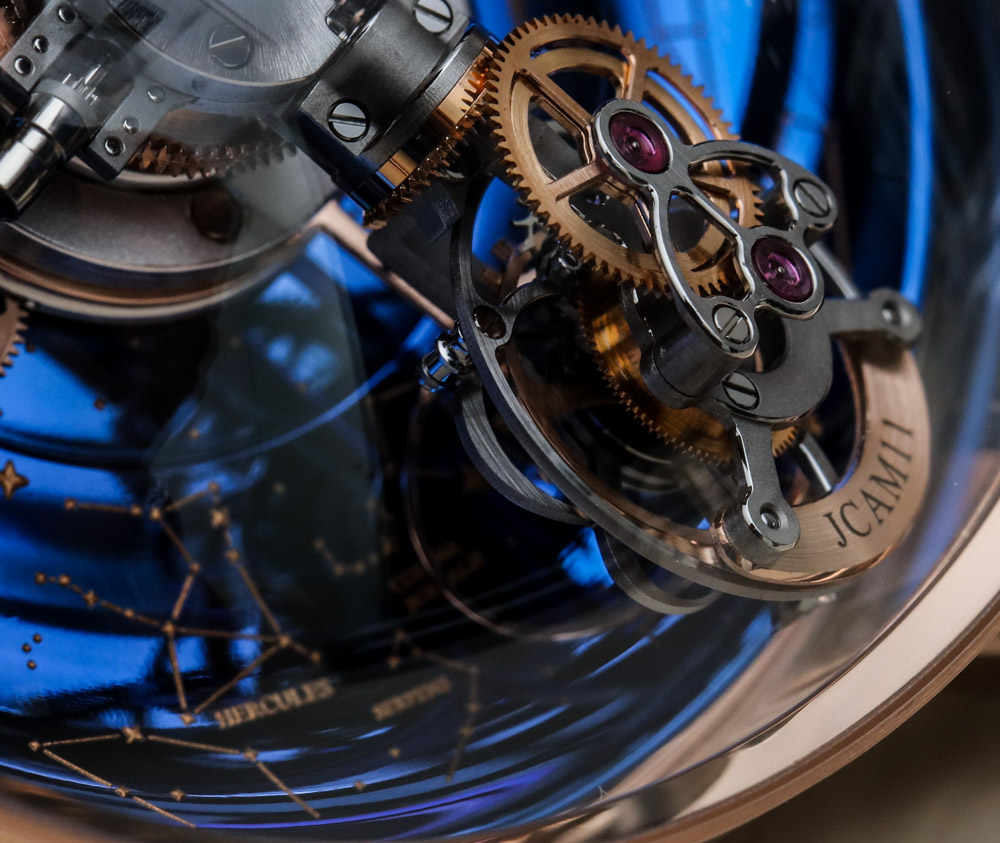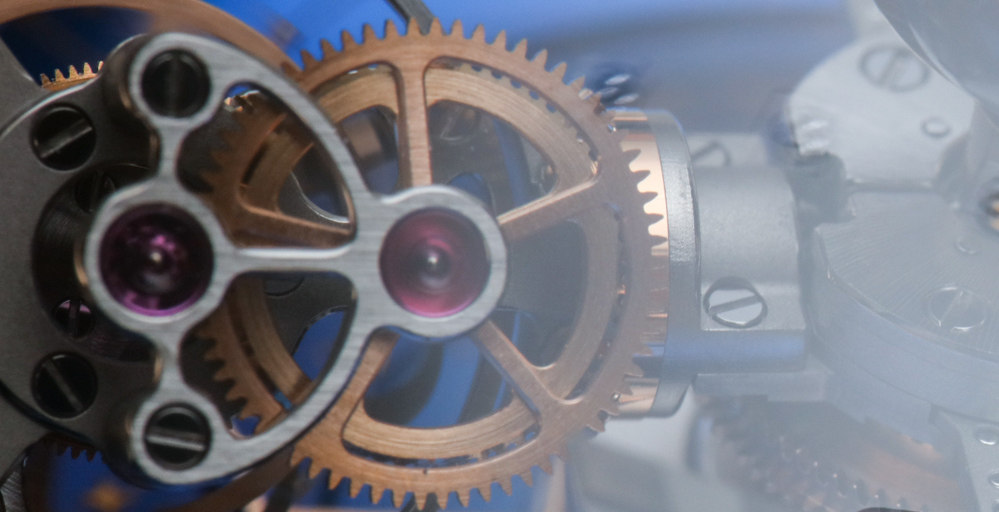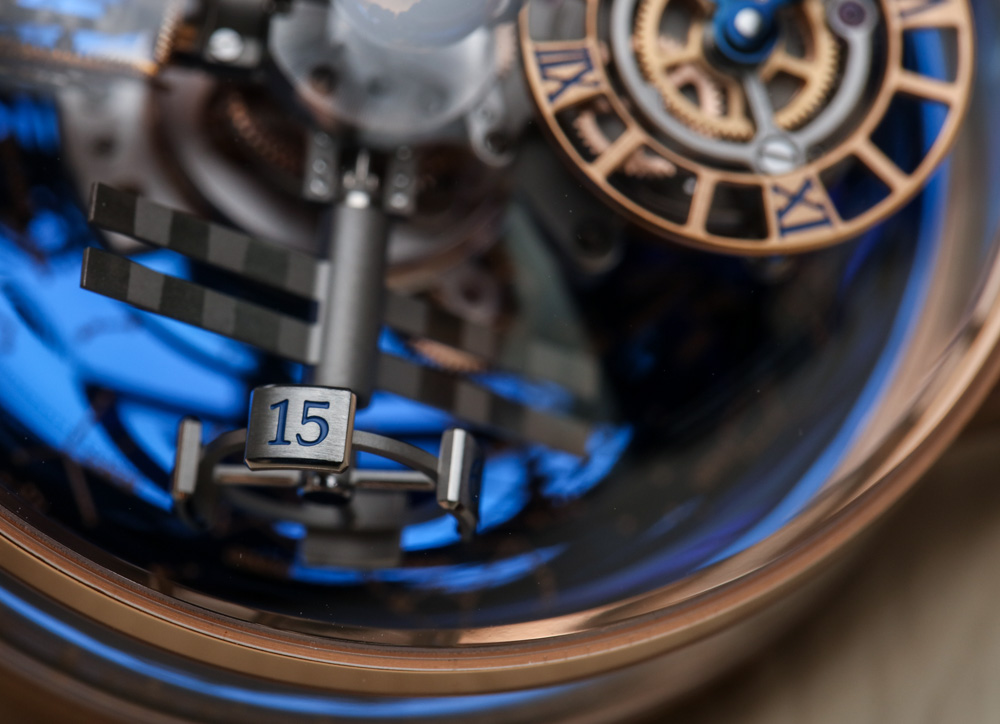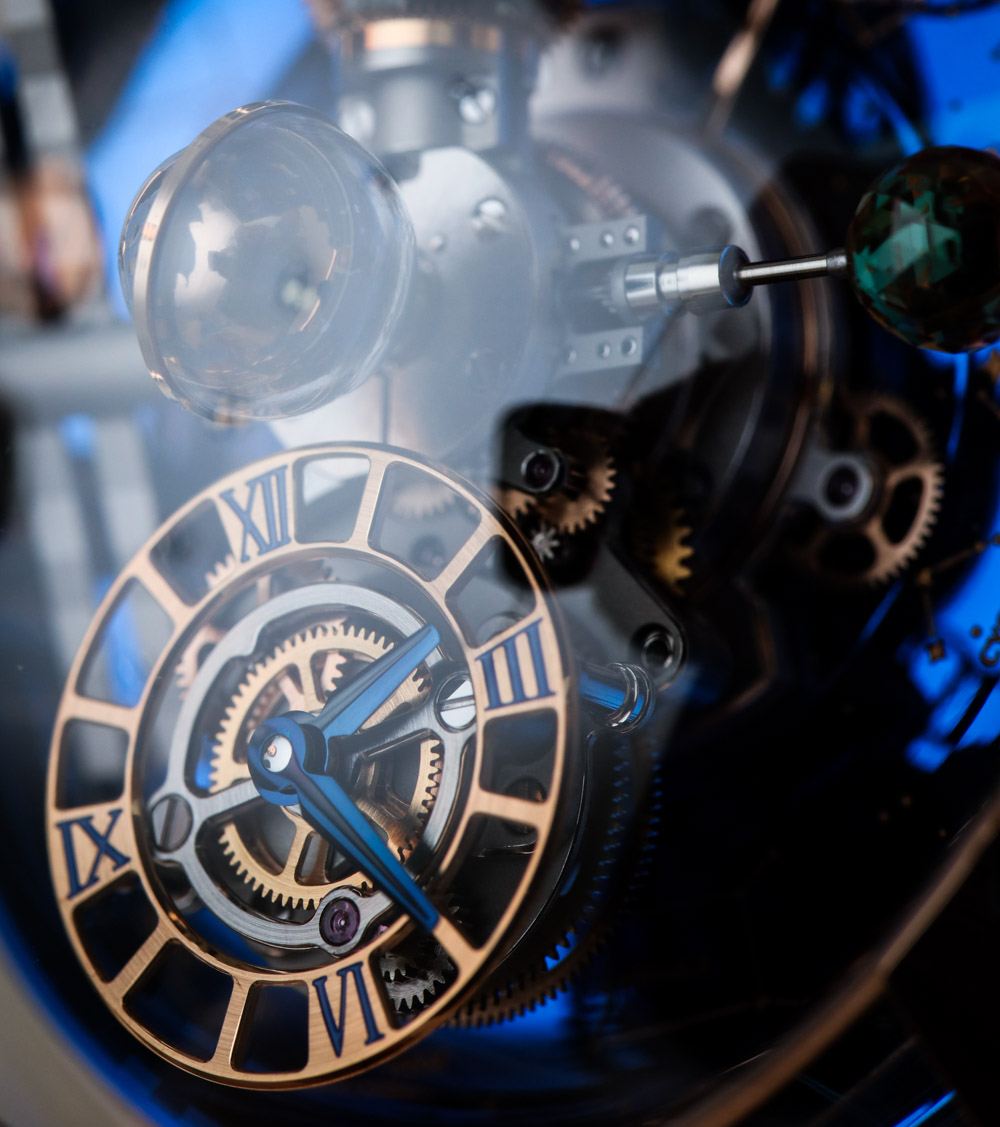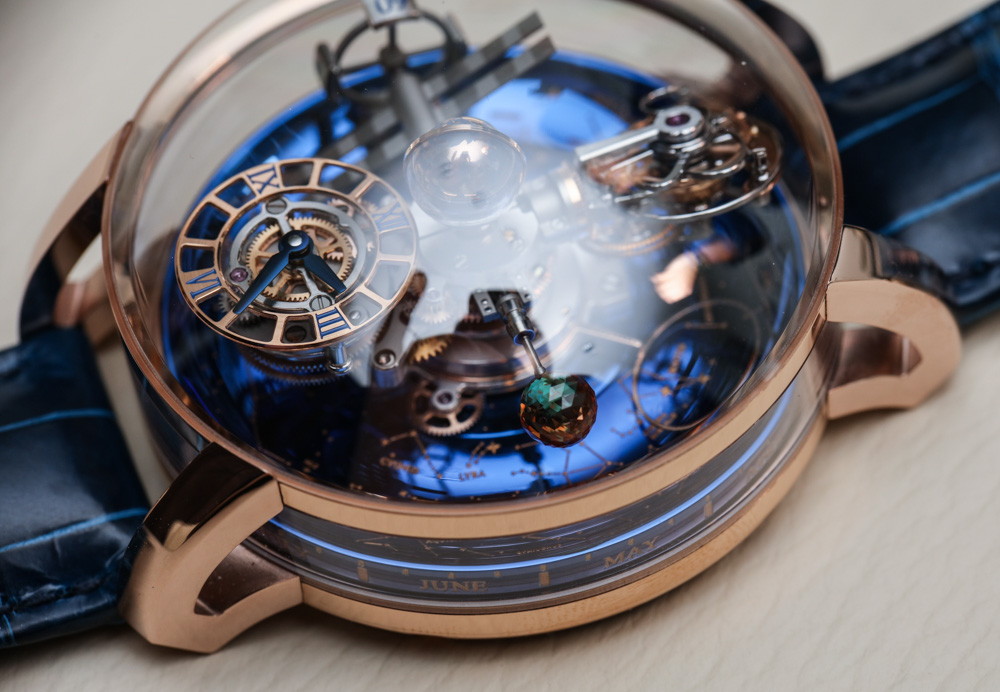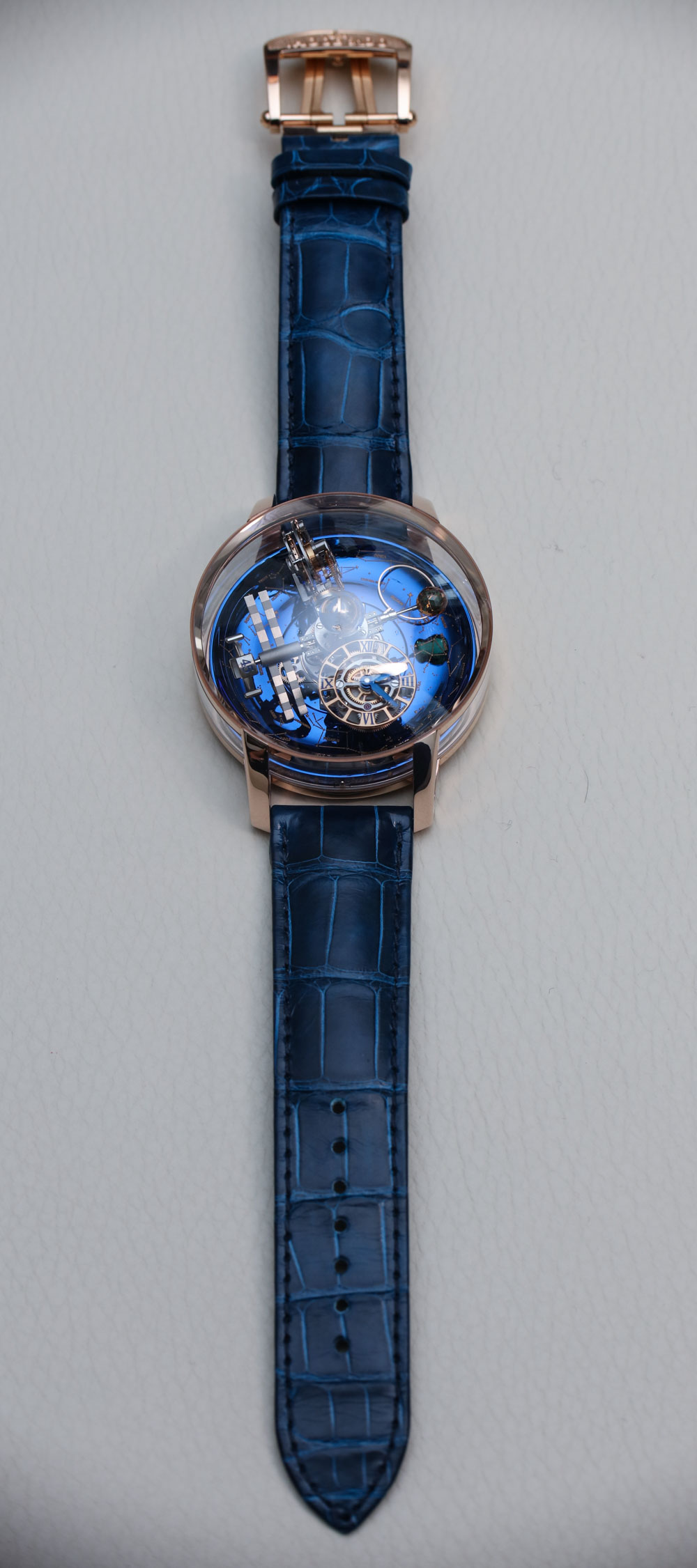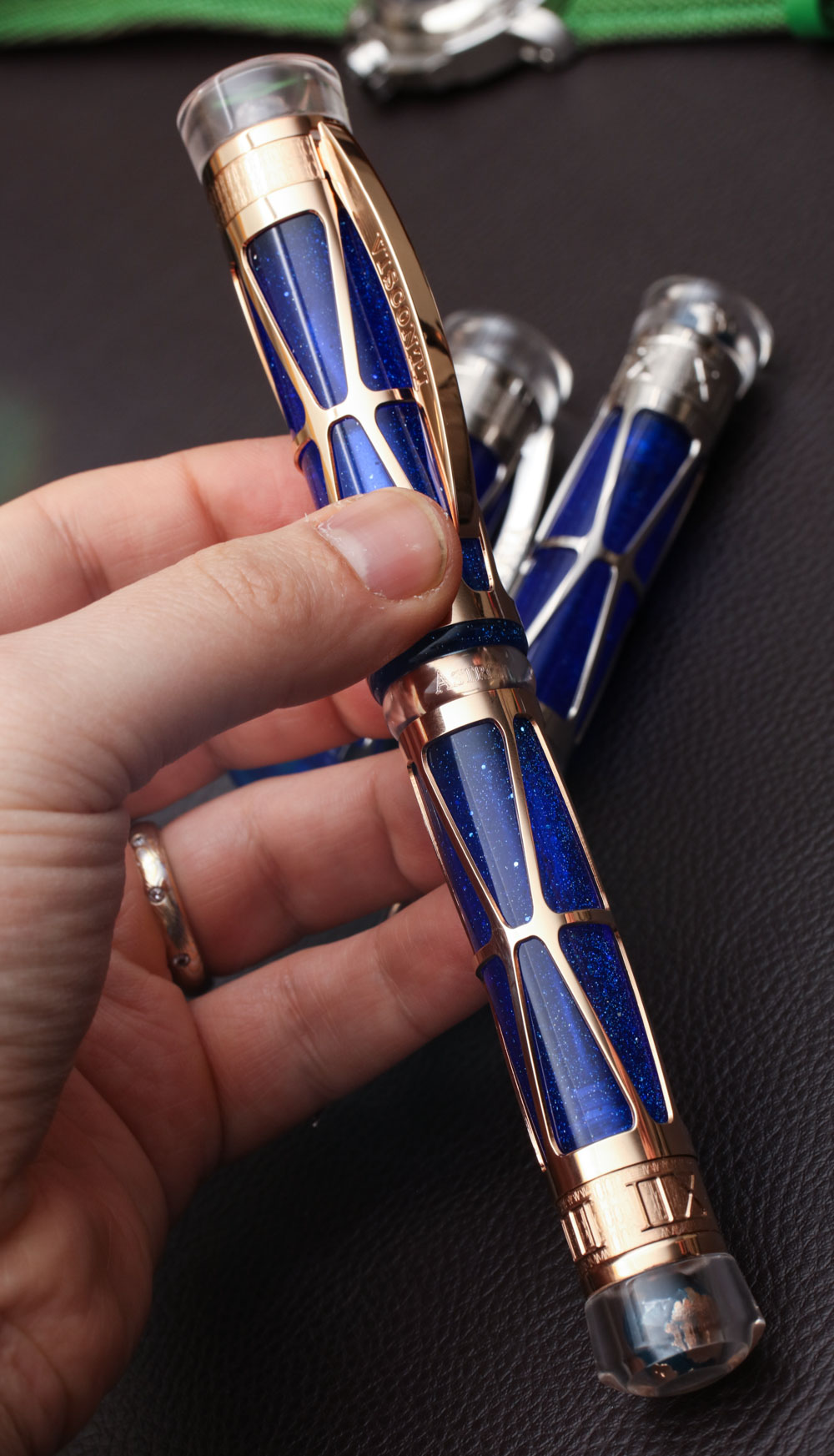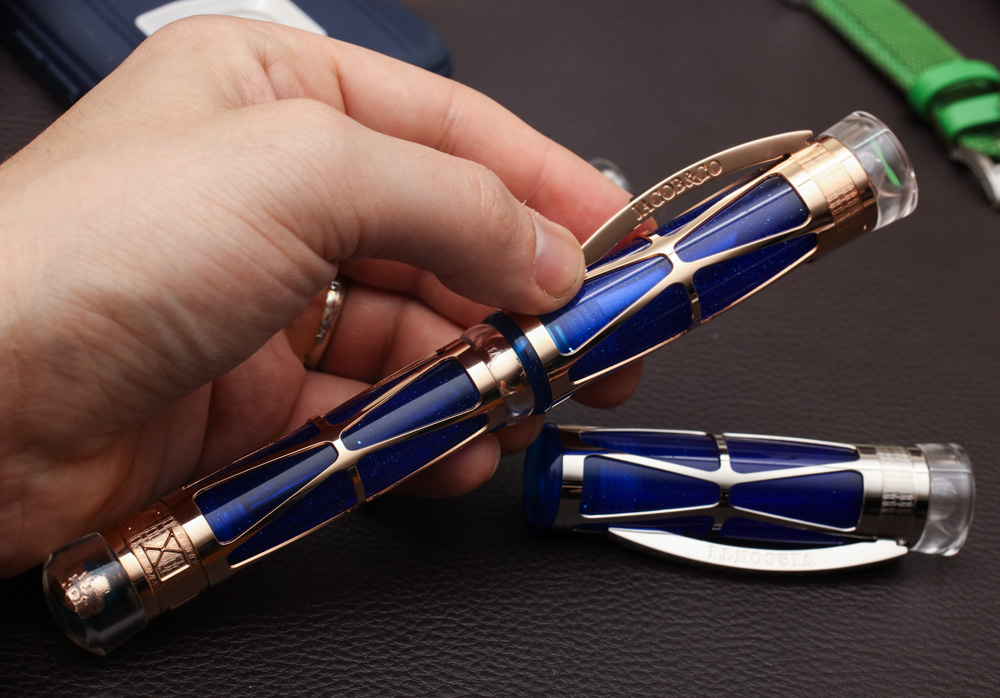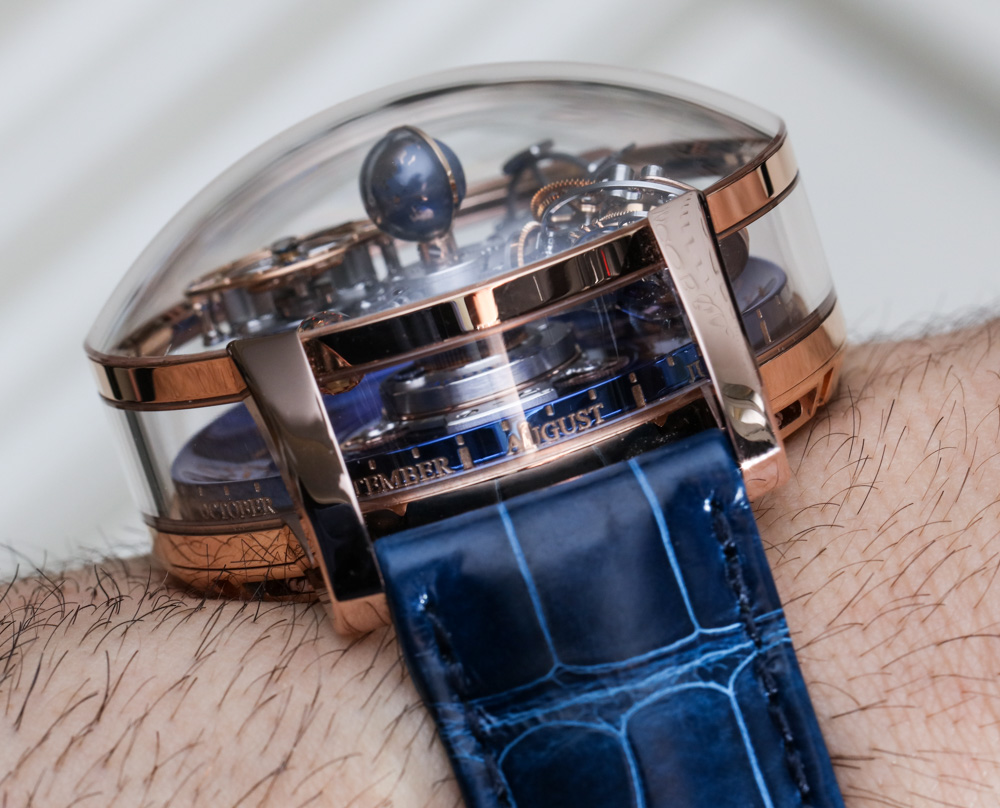
At Baselworld 2016, Jacob & Co.
introduced a brand-new version of the crowd-pleasing Astronomia mega-watch called the Jacob & Co. Astronomia Sky Celestial Panorama Gravitational Triple Axis Tourbillon. Not intended as a replacement, but rather as a supplement to the original Jacob & Co. Astronomia (hands-on here), the “Jacob & Co. Astronomia Sky” adds a few complications and actually has a smaller case size.
Down from the 50mm-wide size of the standard Astronomia, the Jacob & Co. Astronomia Sky is “just” 47mm wide and 25mm thick. No one wears a watch like this because it is slim, but Jacob & Co. was called upon to make a more wearable version of its interesting Astronomia. Also note that our images of the Jacob & Co. Astronomia Sky Celestial Panorama Gravitational Triple Axis Tourbillon are of a pre-production prototype. One of the crucial missing elements in this prototype watch is a lack of antireflective coating on the sapphire crystals. This makes legibility rather poor and the watch details almost impossible to photograph through the crystal. Just mentioning that since “final” versions of the watch will not have these crystal glare issues as much.
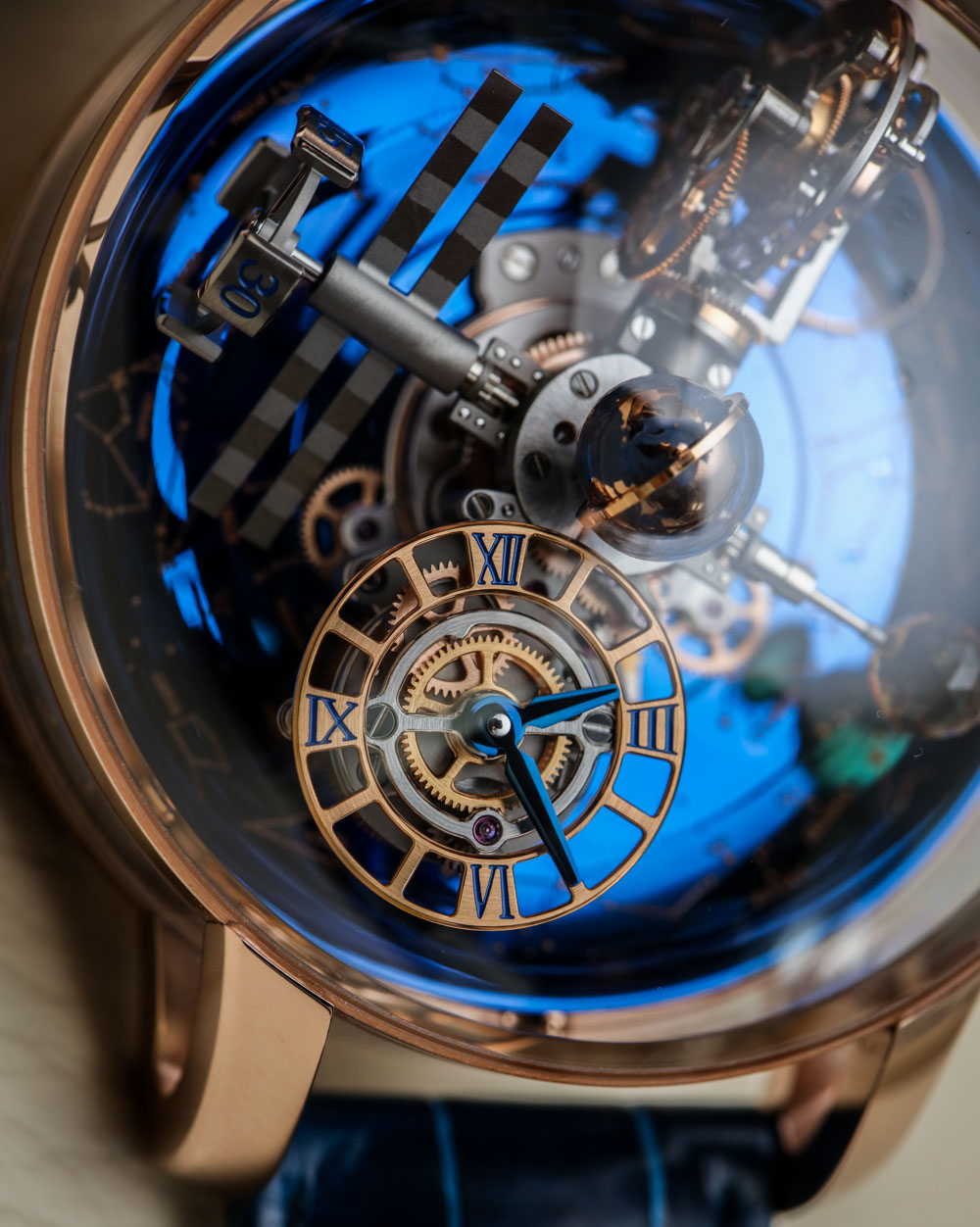
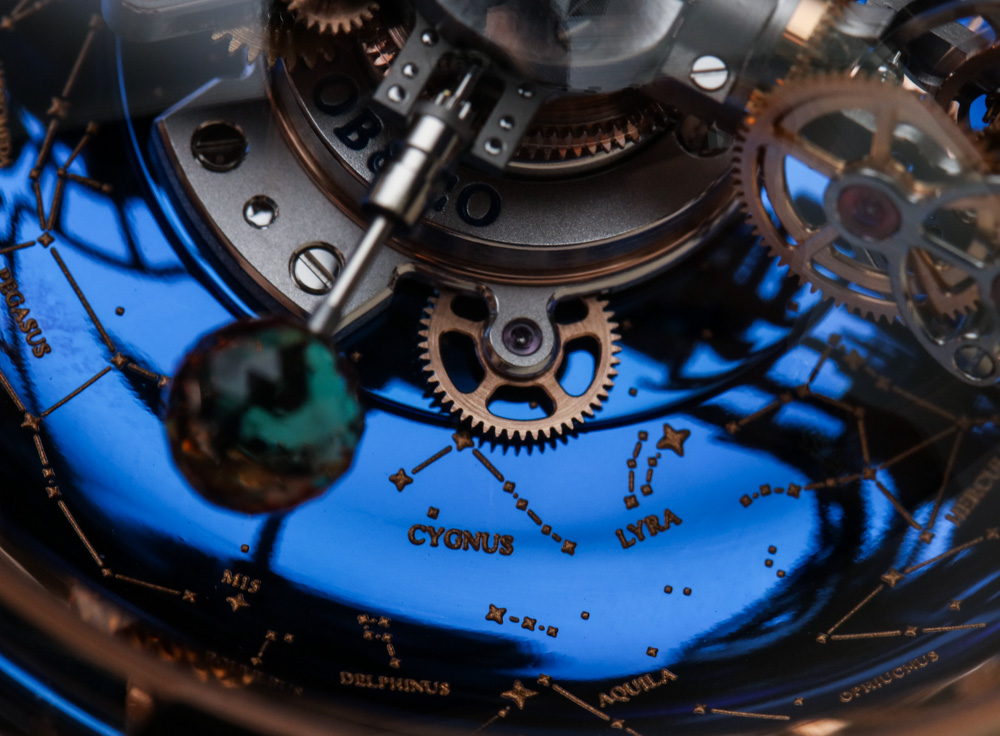
This debut version of the Jacob & Co. Astronomia Sky Celestial Panorama Gravitational Triple Axis Tourbillon comes in a 18k rose gold case with a large domed sapphire crystal on top and a middle sapphire crystal ring around the side of the case. It makes viewing the interior of the watch and the movement very simple and attractive. And, yes, there is a pen to go with it. Well, actually these are pens to go with the Astronomia collection watches overall, and they were produced in collaboration with Jacob & Co. by Italian Visconti. These are also pre-production prototypes, and they will come in 18k rose gold and 18 white gold.
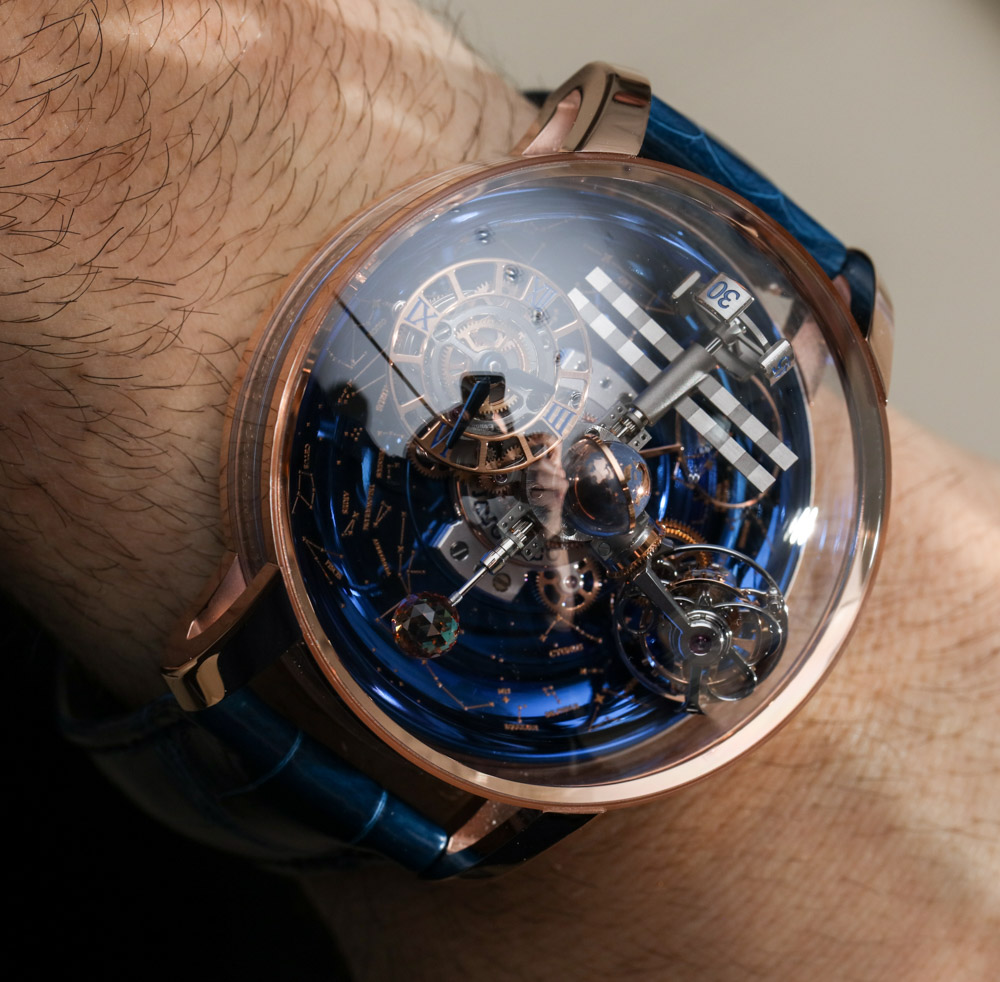
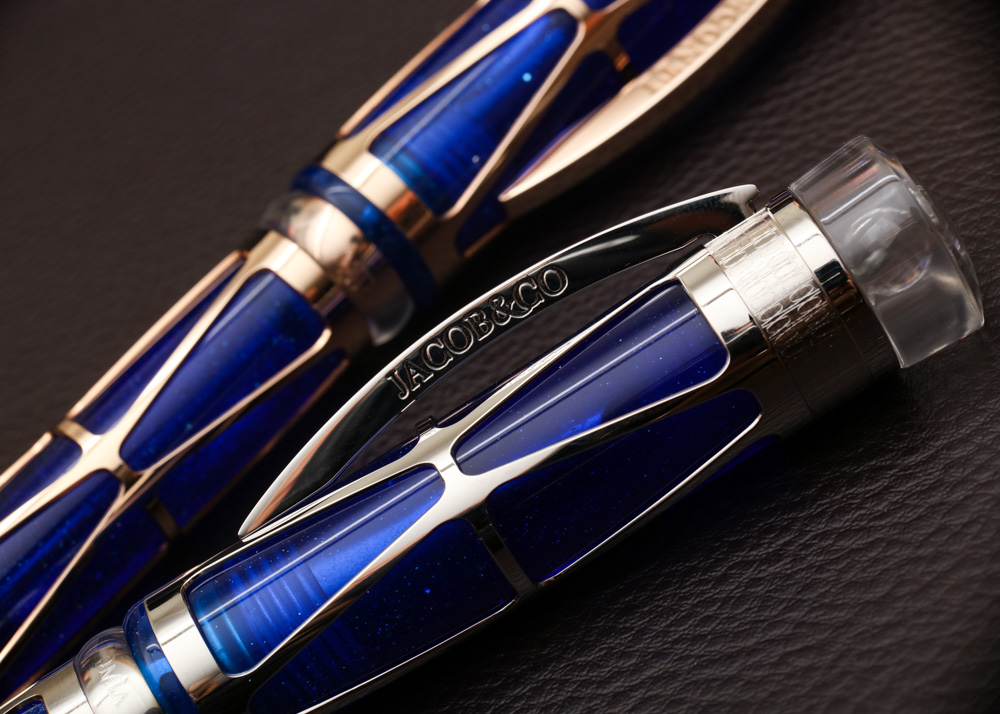
The entire point of the Astronomia was to offer a “four armed” movement which had a dial for the time (that spins to remain upright as the entire movement structure rotated on its axis), tourbillon (that technically moves on two axis points), a spinning seconds indicator, and a spinning orb opposite the seconds indicator. The Jacob & Co. Astronomia Sky more or less retains this functionality (although the style and execution is different) and adds some astronomical complications.
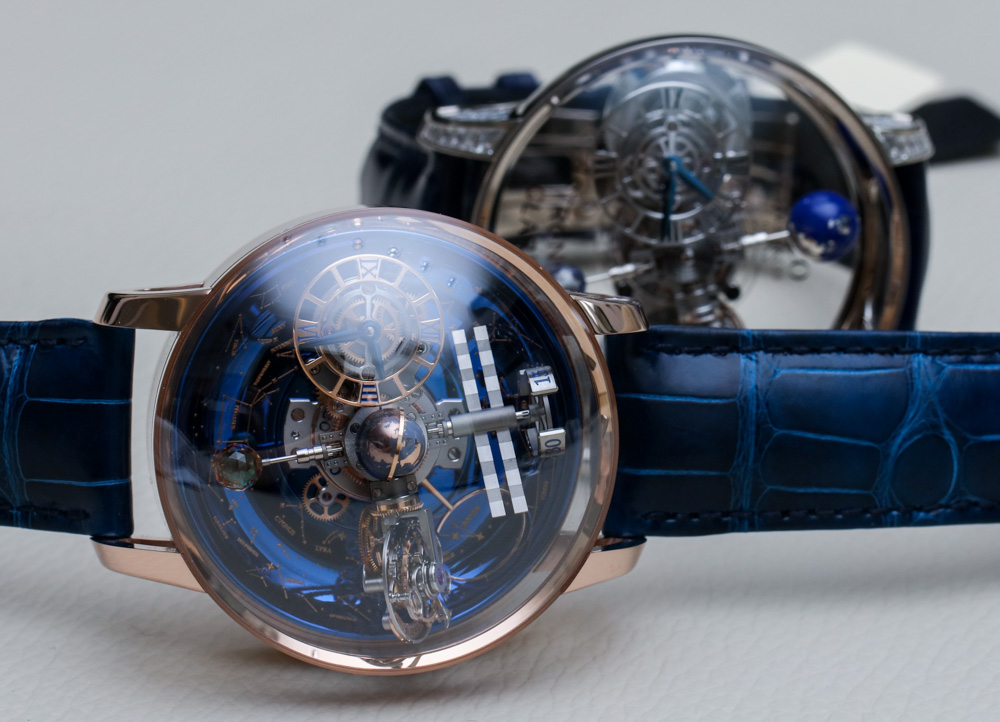
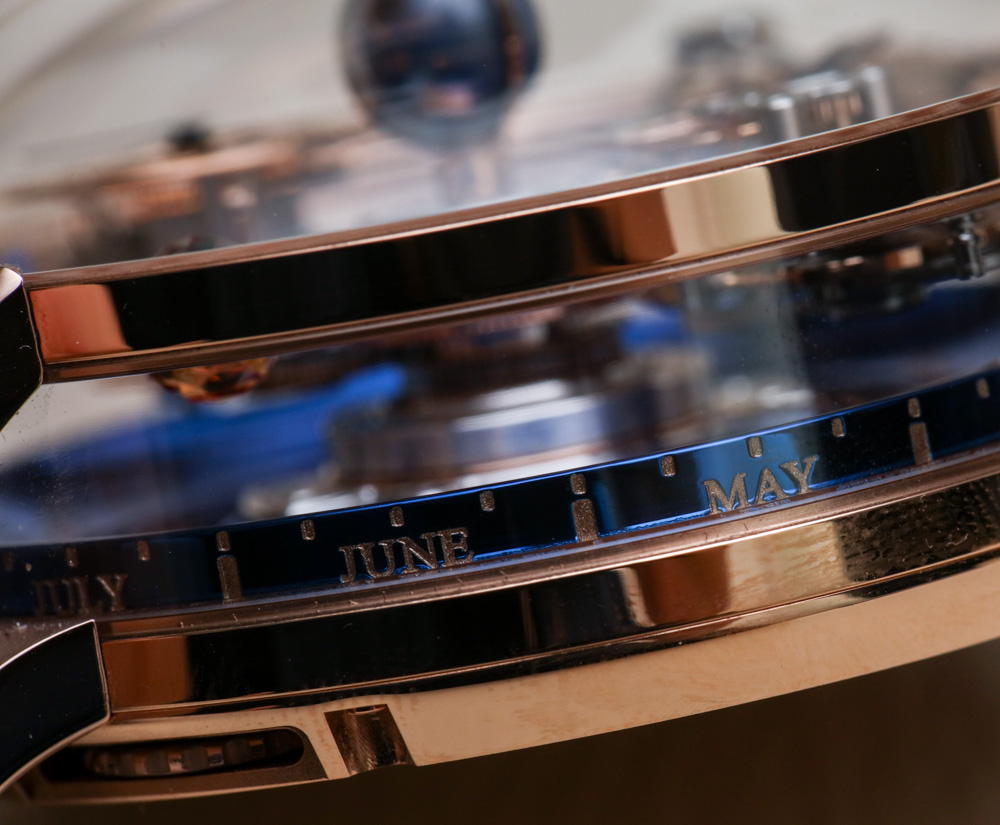
Look around the periphery of the dial through the side of the case, and you’ll see a month indicator that uses a small hand which follows along the 12-month scale which goes entirely around the face. Now, look at the center of the four-armed movement structure, and on top of it you’ll find a small orb designed to look like the earth. This earth orb has a half-sphere shroud which moves around it in order to act as a day/night indicator. There are two axis points here to note, and they are the 24-hour rotating of the day/night indicator as well as the fact that the earth spins around each 20 minutes, since that is the rotation time of the four-armed movement. The small “globe” itself is produced from titanium and then hand-lacquered and engraved.
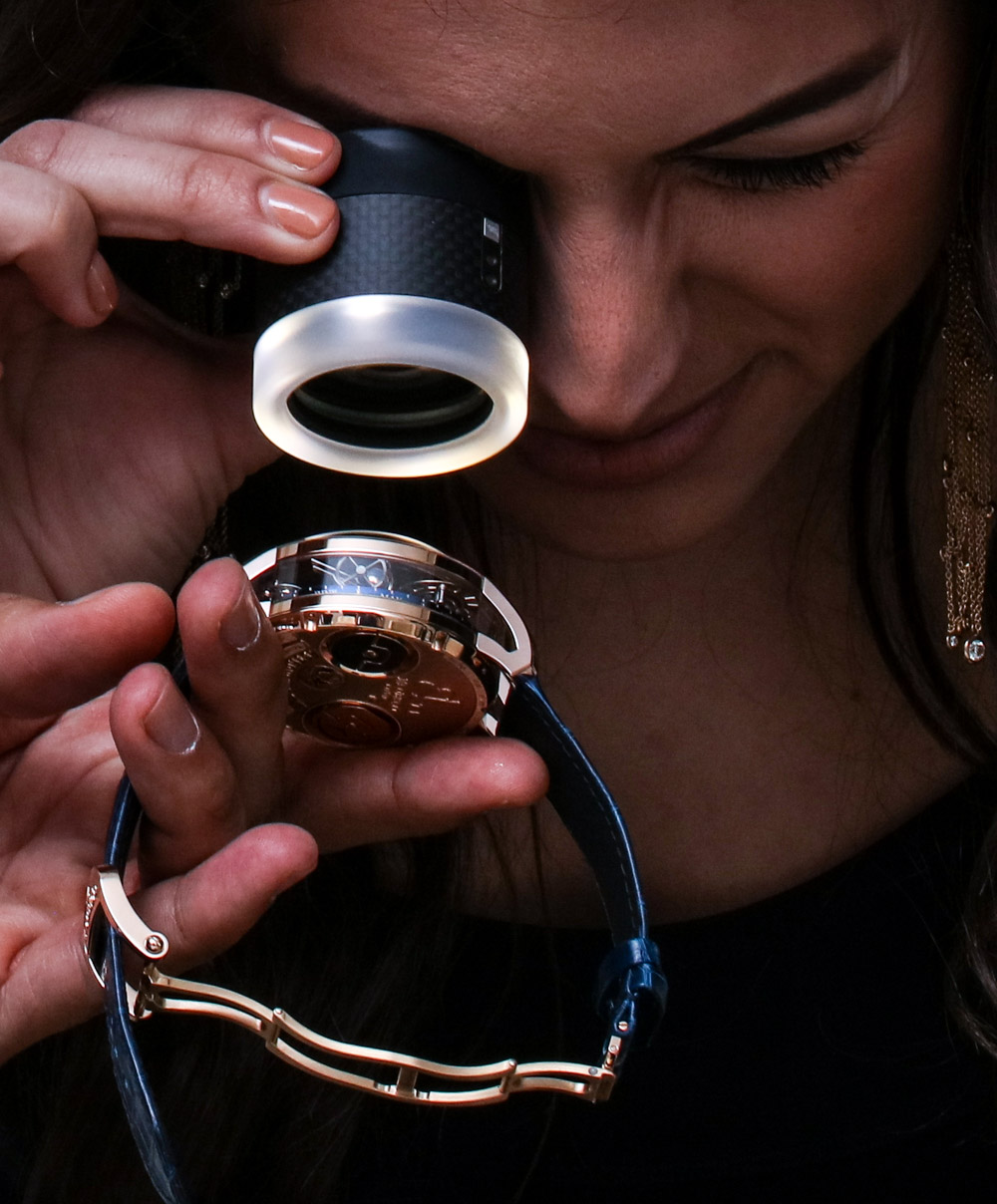
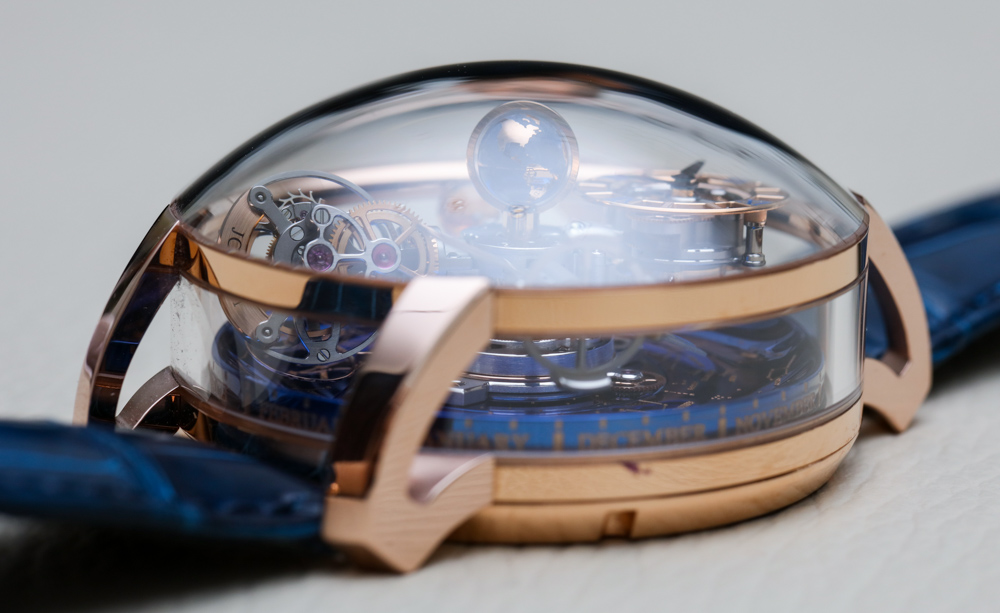
On the dial of the watch under the movement is a celestial star map with a series of zodiac indicators. This face is produced from blued titanium (similar to what we’ve loved in De Bethune watches for a long time) and has an oval “sky indicator” hand. The entire watch face actually makes a full rotation once per year, and the oval sky indicator hand makes a full rotation each sidereal day (about a day) in order to show the stars visible from the northern hemisphere.
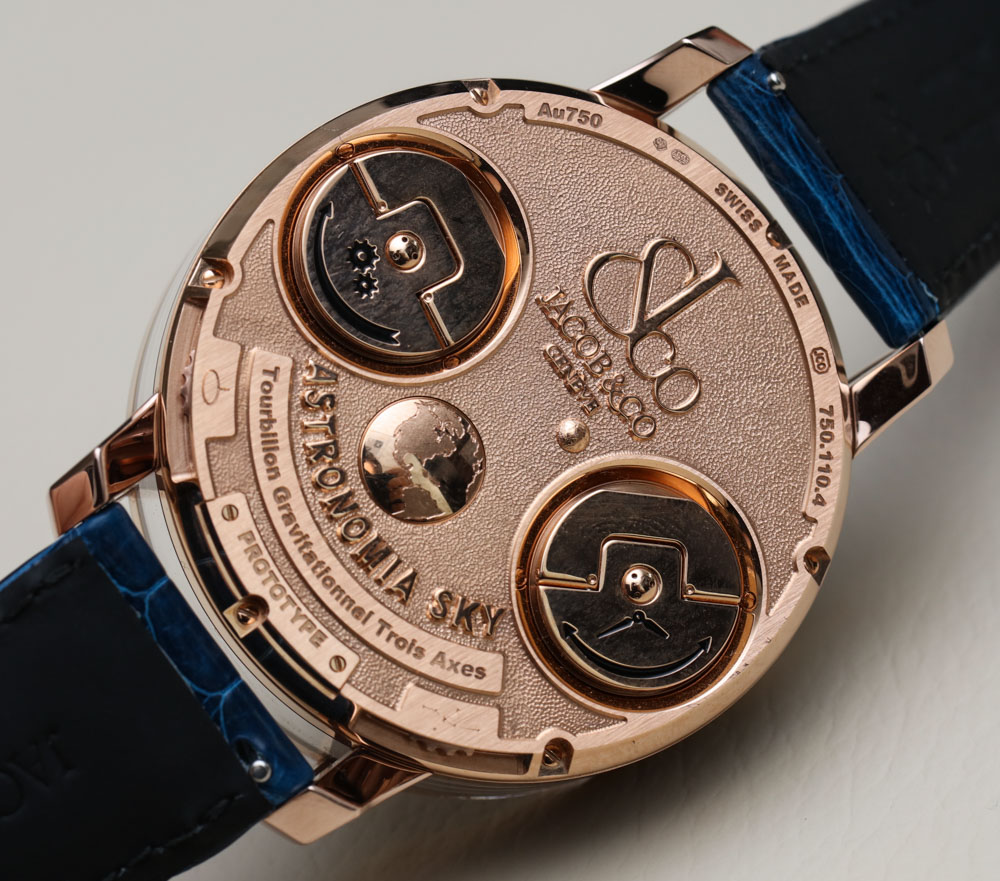
As you can see, Jacob & Co. wanted to add a healthy amount of astronomical information to its Astronomia watch, and I think they did a nice job in the Jacob & Co. Astronomia Sky, while actually making the timepiece smaller. Of course, the watch remains a serious “display piece” with most of the value being in the design and showiness of the fancy mechanics.
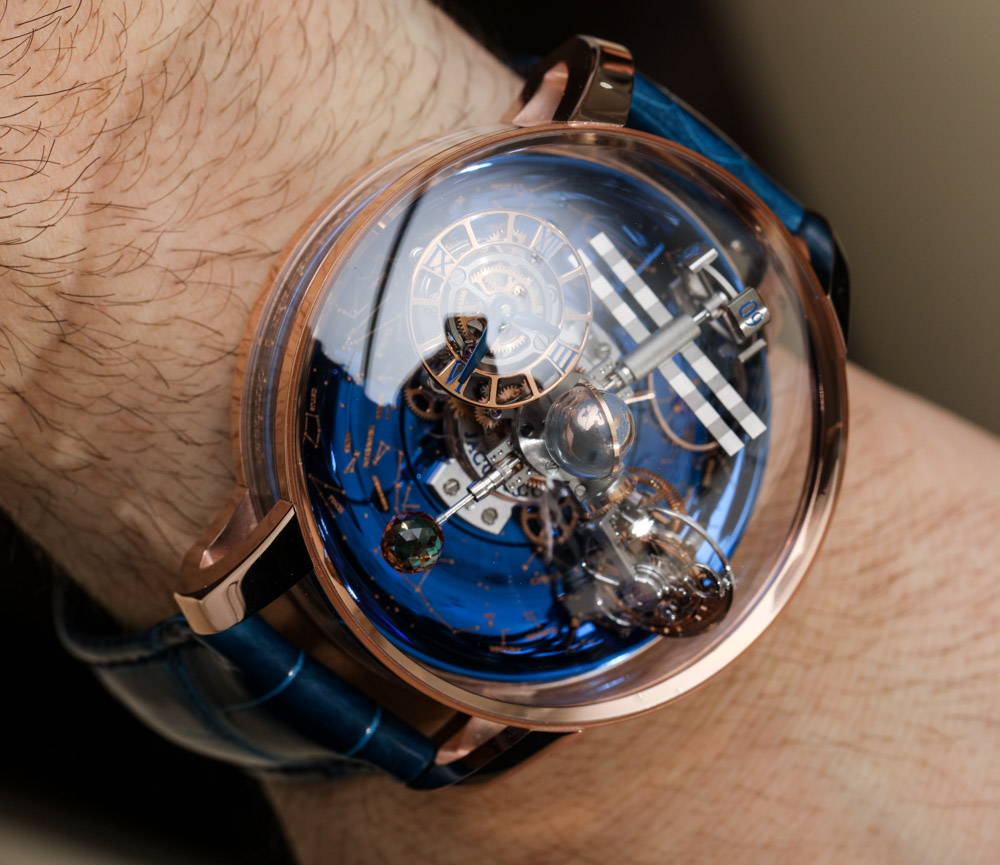
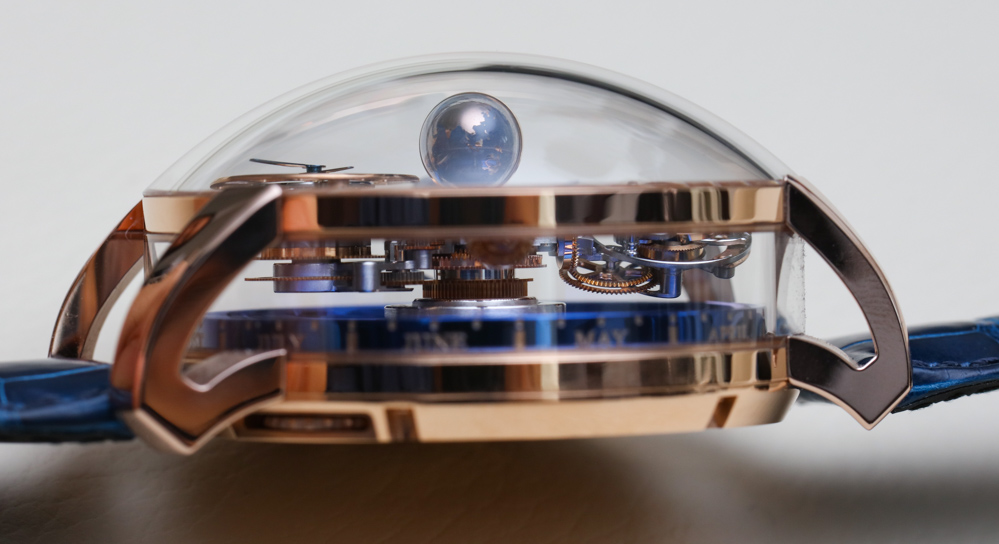
Compared to the original Astronomia, the movement design is a bit altered in the Jacob & Co. Astronomia Sky Celestial Panorama Gravitational Triple Axis Tourbillon. The “Jacob Cut” diamond is here replaced with a Jacob Cut orange-colored sapphire that spins, making a full rotation each minute, and is shaped like an orb with 288 facet cuts. Opposite this Jacob Cut sapphire crystal is the second indicator hand which is meant to go with some wavy structures that together are intended to represent an orbiting satellite.
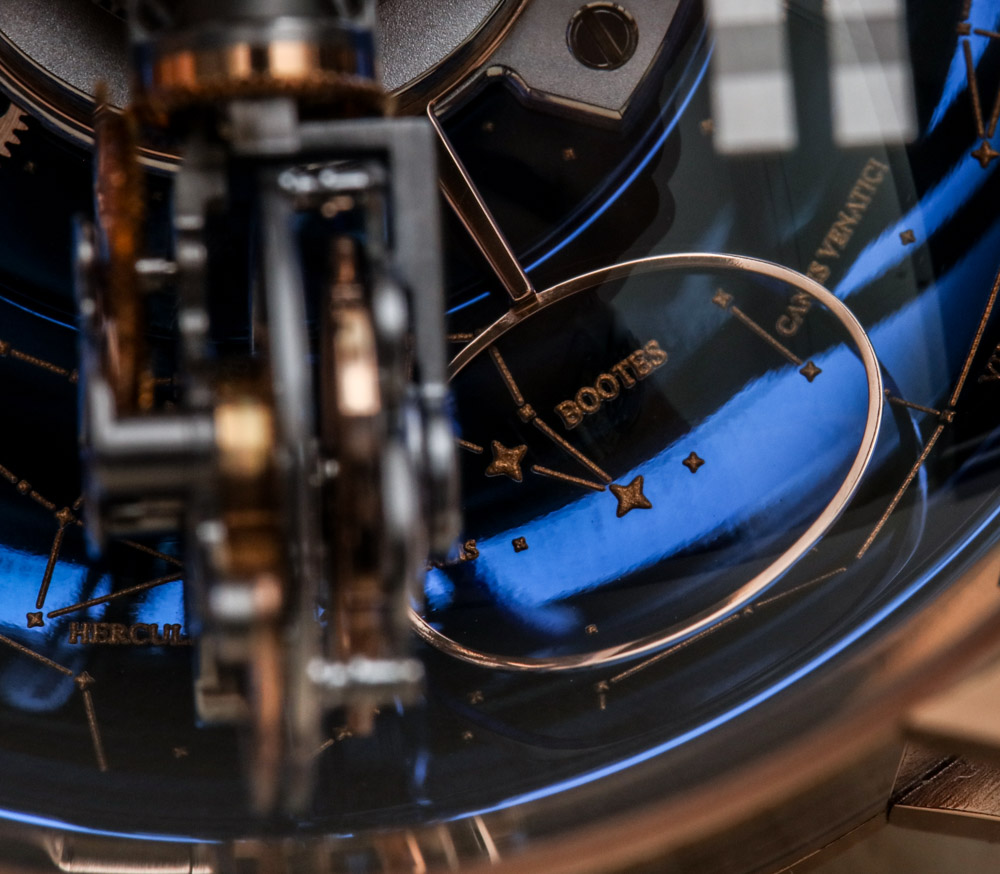

The movement inside of the watch is the exclusive to Jacob & Co (and again produced by Studio7h38) caliber JCAM11. Manually wound, the movement is made of 395 parts and operates at 3Hz (21,600bph) with a power reserve of 60 hours. The movement is marvelous to look at with its complexity and focus on being visually entertaining to view in operation.
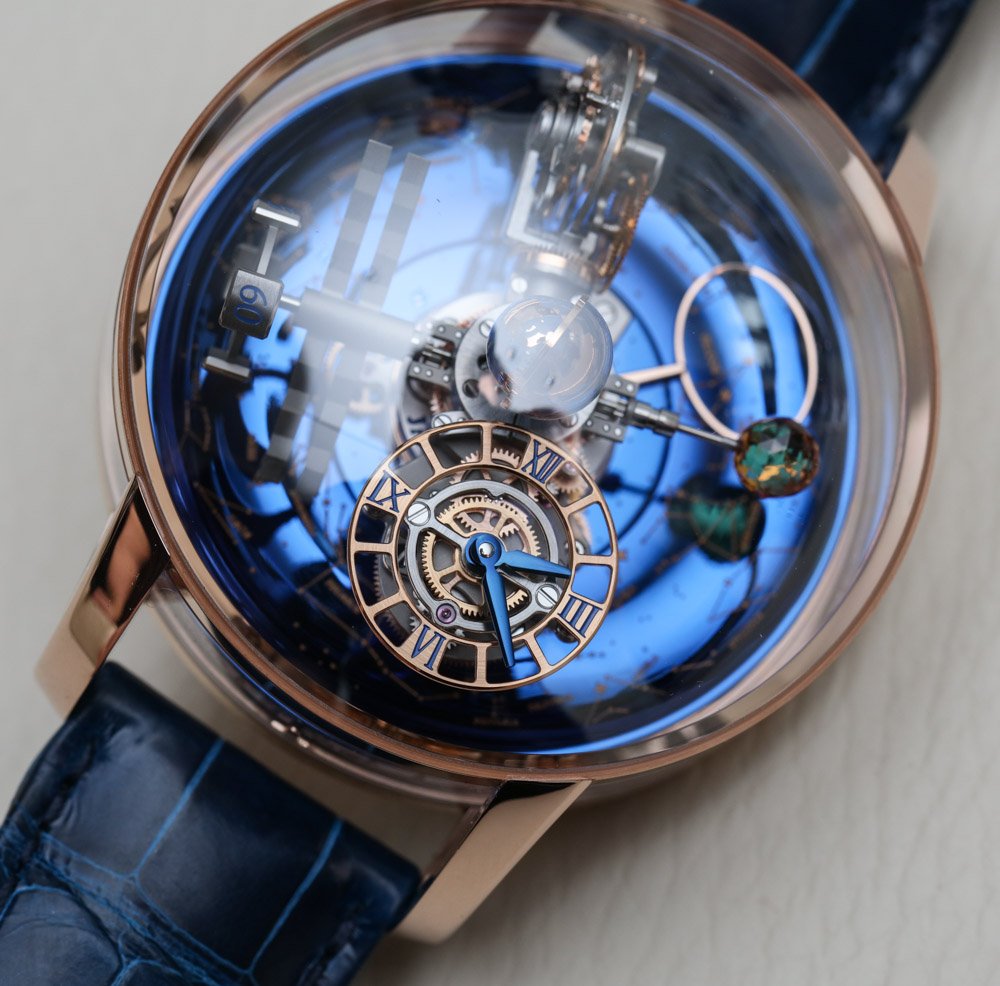
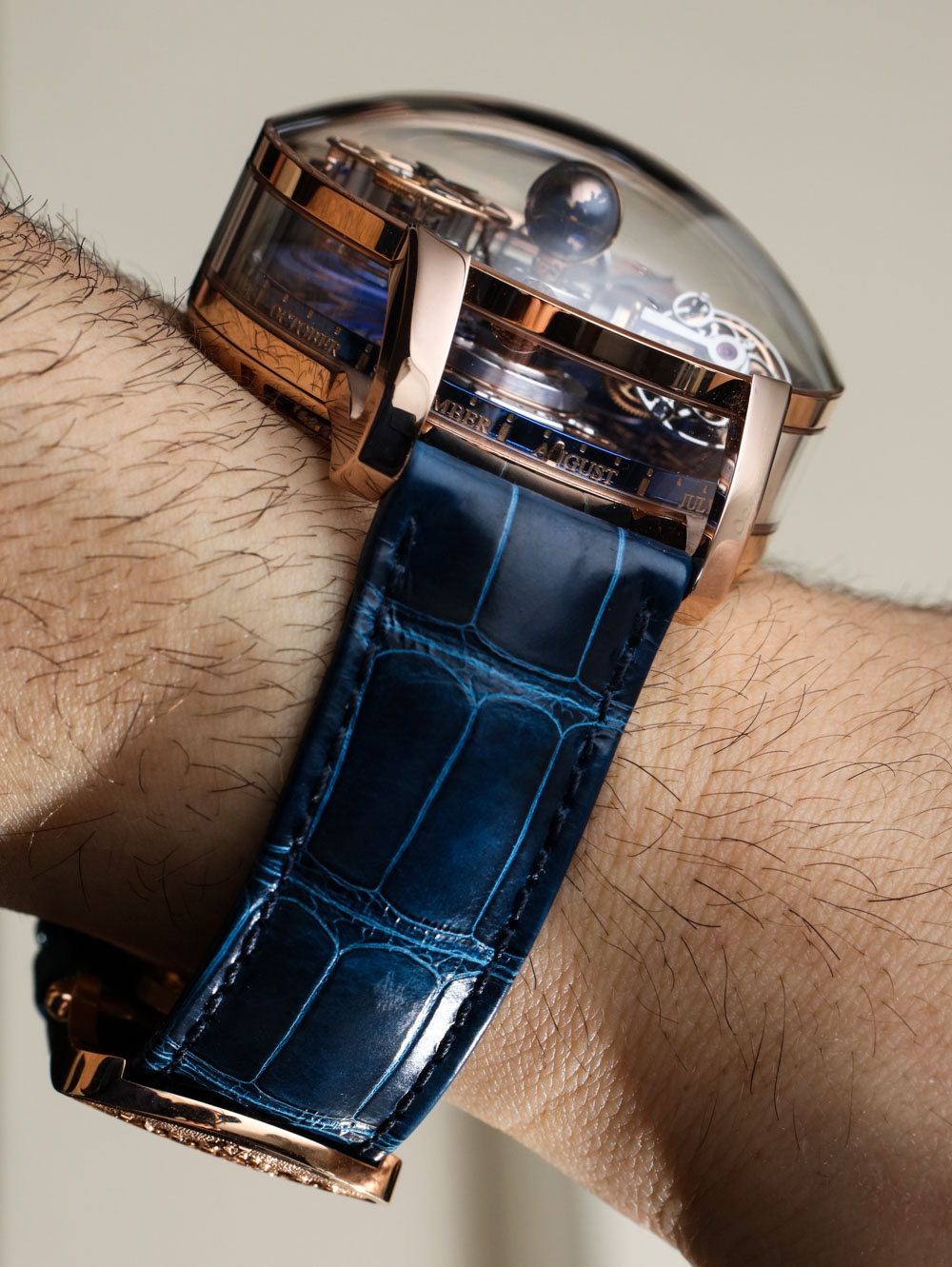
Combining 18k rose gold and blue (with a matching blue alligator strap), the Jacob & Co. Astronomia Sky has a decidedly regal look to it. This time around, Jacob & Co. did not include any diamonds on it, but if I know Mr. Arabo, then diamonds will be coming on a future version of the Jacob & Co. Astronomia Sky. Like most of the watches produced by the brand, the Jacob & Co. Astronomia Sky is part of a limited edition, and this one is just 18 pieces. I can’t wait to see the final version with the appropriate sapphire crystals, as I think this and the entire Astronomia watch collection represent some of the most interesting “out there” watches which are clearly very lavish, but aren’t the types of watches we immediately assume will look best on an oligarch. I can see the Jacob & Co. Astronomia Sky on the wrist of a successful, albeit beneficent ruler! Price for this version of the Jacob & Co. Astronomia Sky Celestial Panorama Gravitational Triple Axis Tourbillon is $680,000. jacobandco.com


